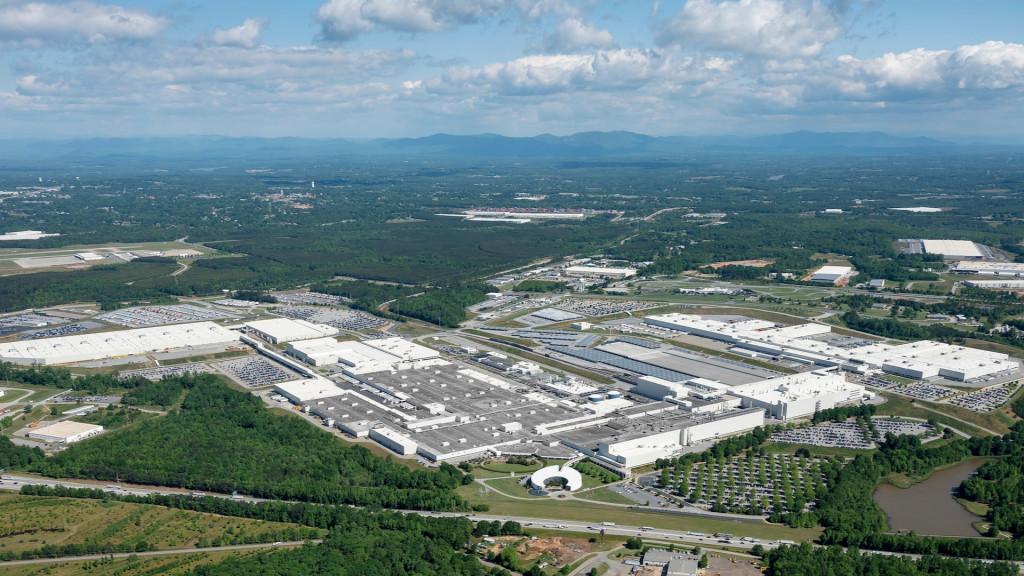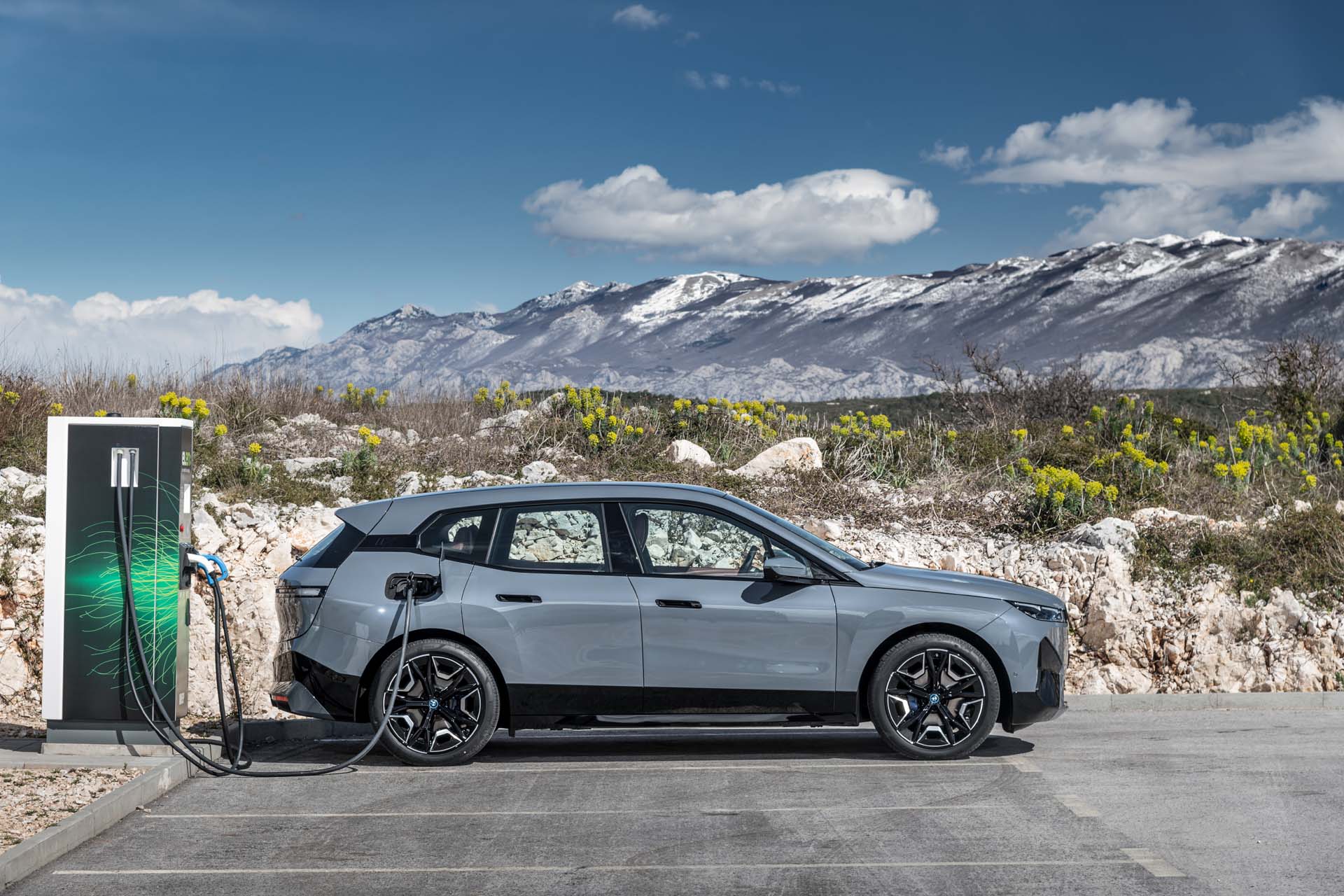BMW on Wednesday announced a major investment in its U.S. plant to prepare it for production of electric vehicles.
The automaker said it will spend $1 billion on its plant in Spartanburg, South Carolina, to prepare the site for EVs, plus a further $700 million to build a new battery plant in nearby Woodruff, South Carolina, and hire 300 workers.
The Spartanburg plant is BMW’s biggest in the world, with a total 433,810 vehicles rolling off the line in 2021. It produces the X3, X4, X5, X6, and X7 lines, including hybrid versions of some of those vehicles, and will soon add production of the new 2023 XM high-performance hybrid SUV.
BMW said at least six EVs will be built at the Spartanburg plant by 2030. Most of these will likely be electric versions of the existing SUV lines.

BMW assembly plant in Spartanburg, South Carolina.
The battery plant in Woodruff will be operated in partnership with Envision AESC. The battery supplier was founded as AESC in 2007 by Nissan and fellow Japanese companies NEC and Tokin, though Nissan sold off its controlling stake to China’s Envision Group in 2018.
The plant will have a capacity of up to 30 gwh and initially produce BMW’s new sixth-generation battery, which features cylindrical cells. The design provides packaging advantages over current prismatic cell designs and as a result improved density and performance. BMW quotes an increase in energy density of more than 20%, improved charging speed by up to 30%, and enhanced range by up to 30%.
BMW with its partners also plans four additional battery plants in Europe and China. Each of the plants will have a capacity of more than 20 gwh.
BMW’s announcement is the latest of several recent multibillion-dollar investments in U.S. EV production following the passing of legislation that encourages domestic production, specifically the Inflation Reduction Act and the United States-Mexico-Canada Agreement. With these policies, automakers are able to avoid tariffs or qualify for financial incentives by producing domestically.

강남콜걸
order lasuna sale – purchase himcolin generic purchase himcolin online cheap
buy besivance eye drops for sale – sildamax online buy sildamax
purchase neurontin online – motrin oral sulfasalazine pills
how to buy probalan – tegretol 200mg pills buy carbamazepine generic
celecoxib 100mg ca – brand celebrex 200mg generic indomethacin
buy generic mebeverine – order cilostazol 100 mg for sale pletal pills
cambia buy online – order aspirin 75 mg online aspirin cheap
purchase mestinon online cheap – azathioprine 25mg usa imuran 50mg oral
voveran over the counter – buy nimodipine without a prescription oral nimodipine
buy lioresal without a prescription – order baclofen 10mg generic buy piroxicam 20 mg generic
order mobic pills – order toradol generic where to buy toradol without a prescription
buy periactin 4mg sale – periactin 4mg pills tizanidine usa
purchase trihexyphenidyl online cheap – purchase diclofenac gel online order voltaren gel online cheap
omnicef 300mg us – order cefdinir 300mg sale purchase cleocin online cheap
order generic isotretinoin 40mg – deltasone 5mg without prescription buy deltasone online
prednisone 20mg tablet – prednisolone us elimite oral
buy acticin paypal – order tretinoin generic order retin cream generic
where to buy betnovate without a prescription – betamethasone online buy monobenzone no prescription
buy cheap generic metronidazole – buy metronidazole pills buy cenforce for sale
augmentin 1000mg cheap – buy augmentin buy generic synthroid online
cleocin uk – indocin 50mg pills buy indocin generic
cozaar sale – hyzaar online buy keflex 125mg online
crotamiton order – buy aczone cheap order aczone
modafinil 200mg for sale – order modafinil 100mg online order meloset 3mg
buy zyban without prescription – order shuddha guggulu online cheap cheap shuddha guggulu
order capecitabine 500 mg without prescription – xeloda 500 mg uk buy cheap generic danocrine
order progesterone – purchase clomiphene pills order clomiphene for sale
order fosamax 35mg – medroxyprogesterone 10mg for sale buy medroxyprogesterone 5mg generic
generic aygestin 5 mg – aygestin 5 mg drug cheap yasmin tablets
estrace 1mg for sale – cheap letrozole 2.5 mg order anastrozole 1mg
buy dostinex generic – buy cabergoline sale buy alesse without prescription
г‚·гѓ«гѓ‡гѓЉгѓ•г‚Јгѓ«йЂљиІ© 安全 – シアリスジェネリック йЂљиІ© г‚їгѓЂгѓ©гѓ•г‚Јгѓ«йЂљиІ© 安全